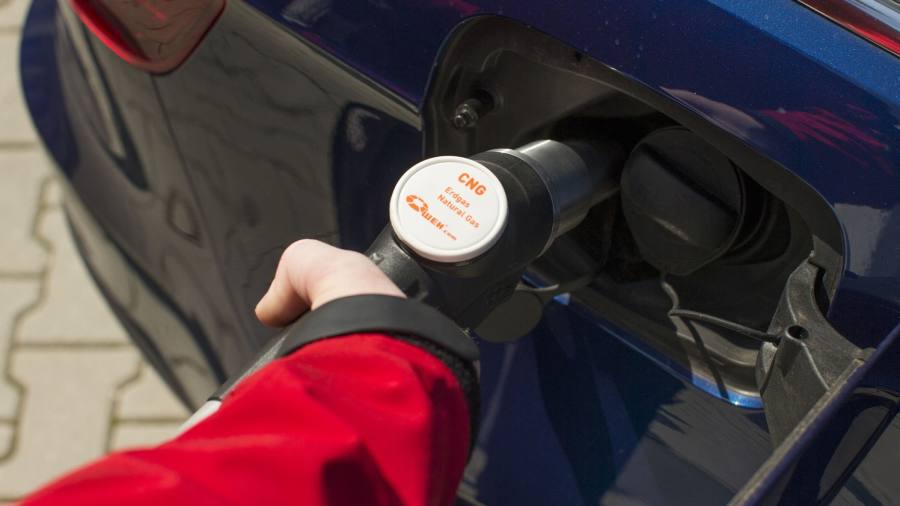
TotalEnergies and a Belgian energy start-up plan to build a $2bn plant in the US to produce synthetic natural gas, underscoring how President Joe Biden’s Inflation Reduction Act is drawing clean energy infrastructure investment away from Europe and towards the United States.
The plant, which will probably be in Texas, will use wind and solar power to make hydrogen that will be combined with carbon dioxide to create synthetic methane — which has essentially the same chemical structure as natural gas.
Marco Alverà, chief executive of Tree Energy Solutions, which is focused on the production of green hydrogen, said the incentives provided by the IRA had accelerated the project by several years.
“The US has the best renewable potential when it comes to solar and wind, it has great ease of doing business, and it has available CO₂, available pipes and liquefaction capacity — so it ticks a lot of boxes even before the IRA.”
The downsides to building in the US, such as high inflation and high labour costs, were more than compensated for by the financial benefits of the IRA, Alvera added.
Synthetic methane has gained backing as it can be produced with CO₂ that is pulled from the atmosphere or captured from waste sources, effectively making it carbon neutral to burn.
The synthetic fuel is also identical to natural gas and can be used in existing natural gas infrastructure, including LNG facilities.
Similar projects are already under way in other countries, including Japan, where Tokyo Gas, the city’s top gas supplier, piloted a small-scale project last year, while French utility Engie injected synthetic gas into the French gas distribution network in 2022.
“This synthetic fuel will contribute to the energy transition by helping our customers to decarbonise their activities, notably the ones that are difficult to electrify,” said Stéphane Michel, president of gas, renewables and power at Total.
Tree Energy, which has raised about $200mn since it was launched in 2019, counts mining group Fortescue Future Industries, HSBC and German utility Eon as investors.
Total and Tree Energy are each taking a 50 per cent stake in the project but are looking to raise 80 per cent of the cost through debt. They plan to make a final investment decision in 2024. The plant is expected to produce 100,000 tonnes to 200,000 tonnes of synthetic natural gas per year, and likely to be based in Texas, the companies said. Its carbon dioxide derives from facilities that have natural waste that is being burnt.
The synthetic natural gas produced by this plant will be for the US market and for export to Europe and Asia.
Synthetic gas is “ultimately superior to natural gas from an emissions point of view” as the method reuses CO₂ that would otherwise be released, said Tim Hard, senior vice-president of energy transition at Argus Media.
But “you have a premium feedstock in green hydrogen, which is not cheap to produce, and CO₂ from biomass won’t be cheap either” he added, saying the cost will be the main hurdle for widescale adoption.
Meanwhile, sceptics of synthetic gases point out that there are risks of methane leakage in the production process, while others point out that being carbon neutral is not enough in the face of rapid climate change.
Nevertheless, Alverà believes in demand for the fuel. He thinks the shipping industry, which is increasingly looking at liquefied natural gas as fuel, as well as refineries, steel plants and “even trucks running on LNG” can be potential users of synthetic methane.
He added that TES was in talks with “some of the largest CO₂ emitters in Germany” and also with Japanese entities for the offtake of synthetic natural gas from the Texas plant and from its other future projects.